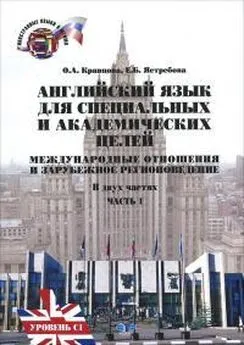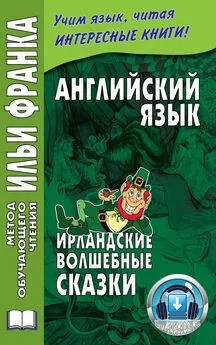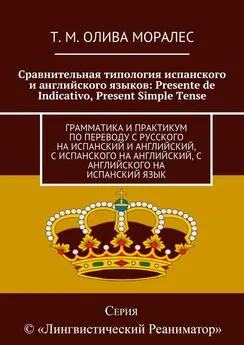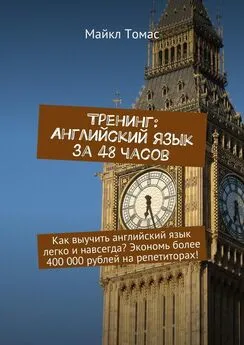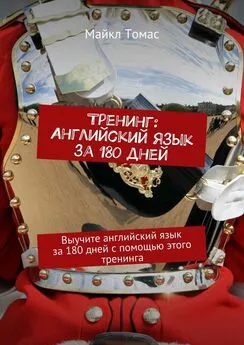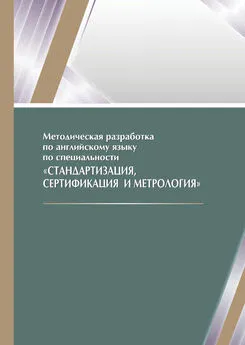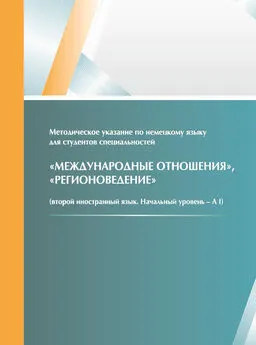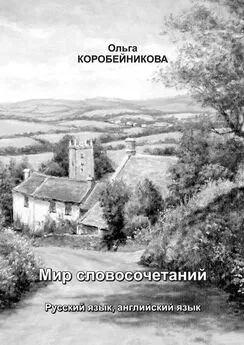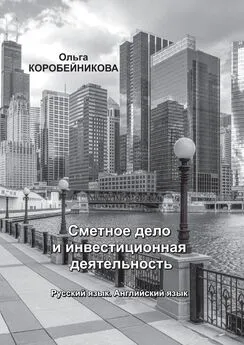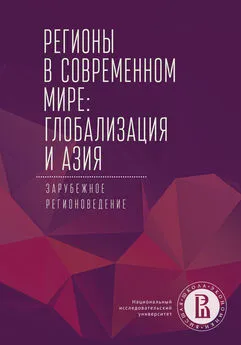Ольга Кравцова - Английский язык для специальных и академических целей: Международные отношения и зарубежное регионоведение. Часть 1
- Название:Английский язык для специальных и академических целей: Международные отношения и зарубежное регионоведение. Часть 1
- Автор:
- Жанр:
- Издательство:МГИМО-Университет
- Год:2015
- ISBN:978-5-9228-1210-8
- Рейтинг:
- Избранное:Добавить в избранное
-
Отзывы:
-
Ваша оценка:
Ольга Кравцова - Английский язык для специальных и академических целей: Международные отношения и зарубежное регионоведение. Часть 1 краткое содержание
Адресовано студентам четвертого курса факультетов и отделений международных отношений и зарубежного регионоведения.
Английский язык для специальных и академических целей: Международные отношения и зарубежное регионоведение. Часть 1 - читать онлайн бесплатно полную версию (весь текст целиком)
Интервал:
Закладка:
2. A leading Australian scientist, recognised internationally for his work in wetlands, says better management of the world's wetlands will help ________________ the effects of climate
change.
3. During the latter part of the nineteenth century, the city (Independence MO.) served as a political ________________ to nearby Kansas City and produced the future President Harry S. Truman.
4. George Osborne said encouraging investment and exports was a ________________ a ga i n s t
which the government should be judged.
5. The Pakistani politician said that the present government has neither vision nor capacity and
future planning _________________ the country out of the prevailing crisis.
6. The economic crisis which has _________________ the EU has required some major policy
innovations, and EU institutions now have a much greater say over national economic policies — particularly for states in the euro area.
7. An ________________ culture involves a full and successful integration of diverse people into
a workplace or industry.
8. Strength is an asset and, true, it is an _____________ against unscrupulous aggression, but it also
becomes self-destructive if it grows excessively strong and is crushed under its own momentum.
9. Lord Byron created Manfred when Europe was _____________ between the night of the Napole
onic wars and the dawn of the Age of Revolution — a time that bred charismatic national heroes.
10. Freedom is an _________________ of democracy, but not undisciplined — an irresponsible
freedom by participation of the people directly or indirectly in the making of the laws by which they are governed.
11. This reported behaviour of refusing most requests is at odds with previous observational research in the US that showed ________________ to be the more typical.
12. What is impermissible is for the state to hand over the _________________ of sanctions to
private individuals who ________________ the sanctions on its behalf.
SPEAKING
LISTENING 2

Unit III. EU at the Crossroads
Rise of Eurosceptism; an assertion of identity — Nigel Farage http://www.youtube.com/watch?v=eVorAQUtHHY
1. Nigel Paul Farage (/'tera:3/; born 3 April 1964) is a British politician and leader of the UK Independence Party (UKIP) since 2010, a position he also held from September 2006 to November 2009. Since 1999 he has been a Member of the European Parliament for South East England. Farage has been noted for his passionate and sometimes controversial speeches in the European Parliament and has strongly criticised the euro, the European single currency.
2. Jose Manuel Durao Barroso (born 23 March 1956) is a Portuguese politician who was the 11th President of the European Commission, serving from 2004 to 2014. He served as Prime Minister of Portugal from 6 April 2002 to 17 July 2004.
3. Charles de Gaulle, in full Charles Andre Joseph Marie de Gaulle (born November 22, 1890, Lille, France — died November 9, 1970, Colombey-les-deux-Eglises), French soldier, writer, statesman, and architect of France's Fifth Republic.
4. Patrie (French) — homeland
1. See the note on Nigel Farrage. What is the position of his party on European integration?
2. What are the arguments of Eurosceptics against a closer political integration?
1. Nowadays Eurosceptics in the European Parliament are considered to be
a. mentally ill
b. idiots
c. populists
2. 2005 was the pivotal moment in the history of the EU because
a. the French voted against the European Constitution
b. the Dutch supported the European Constitution
c. the European Constitution was ratified
3. According to Nigel Farrage, the real European debate is about
a. a common economic policy
b. national identity
c. the flag and anthem of the European Union
4. Farrage denies that the Eurosceptic position is
a. right-wing
b. sensible
c. nationalist
Unit III. EU at the Crossroads
5. Eurosceptics speak out against
a. economic cooperation
b. immigration
c. political union
1. Why don't Eurosceptics embrace the idea of a political union?
2. Why do you think nationalist populism is gaining ground in the EU member states?
1. How long has the UK been in the EU?
2. Why isn't the UK a member of the Eurozone?
3. Why do you think David Cameron had to pledge to hold a referendum on Britain's EU membership if he remains Prime Minister after 2015?
http://www.historytoday.com/james-ellison/britain-more-european-it-thinks
By James Ellison 1| Published in History Today Volume: 62 Issue: 2 2012
Britain's recent disputes with the European Union are part of a long historical narrative, argues James Ellison — but it is not the whole story.
There is the old joke about British reports of ‘Fog in the Channel — Continent cut off.' The ‘fog' is now thicker and perhaps even more hazardous than it was. David Cameron's veto 50 50 James Ellison is Reader in International History at Queen Mary, University of London and author of The United States, Britain and the Transatlantic Crisis: Rising to the Gaullist Challenge 1963-68 (Palgrave Macmillan, 2007).
51 51 In December 2011, David Cameron refused to sign a tax and budget pact to tackle the Eurozone debt crisis claiming he had to protect key British interests, including its financial markets.
last December during the Eurozone crisis gave it an unhelpful and familiar ‘Britain versus the EU' dimension as Europe faced its darkest economic moment since the Great Depression. While Angela Merkel and Nicolas Sarkozy tried to pump blood into the collapsing veins of the euro, Cameron's demands for City of London safeguards appeared self-centred and anti-communautaire.
The French hit back. Sarkozy told Le Monde: ‘There are clearly now two Europes.' No code there: there is the EU and there is Britain. Merkel was more emollient 1, telling the Bundestag that it is ‘beyond doubt that Britain will remain an important partner in the EU'. As long as the euro survives this crisis will be put down to experience, like others in the EU's past. What Cameron asked for was neither unreasonable nor unexpected to those in the know, it was just that he asked for it undiplomatically and at the last moment. The real fallout from these events is that they reaffirm a damaging and distorted history of Britain and Europe. But there is another story to tell.
Unit III. EU at the Crossroads
Let us first reprise 52 52 Emollient — attempting to avoid confrontation or anger; calming or conciliatory
53 53 To reprise — to repeat the principal points or stages of
the tired narrative of Britain and Europe. Of the contenders for the title ‘Father of Europe', a short French economist, planner and statesman, Jean Monnet (1888-1979), stands tall. He laid the foundation stone of the EU after the Second World War and wanted the British in from the beginning. Alongside Charles de Gaulle, Monnet travelled to London amid the drama of June 1940. He took with him a proposal for ‘indissoluble union' between Britain and France, but the plan fell with Petain's submission to the Nazis. Preventing future Nazis was in part the stimulus for Monnet to write the Schuman Plan of 1950. Named after Robert Schuman, then the French foreign minister, it called for a coal and steel union in Western Europe to neutralise historical enmities. Monnet ensured that the British received an invitation to join, but they demurred. One of Monnet's compatriots recalled the British saying: ‘You in Europe have been defeated; you have been occupied; that is not our situation.'
When the six Schuman Plan countries — Belgium, France, Germany, Italy, Luxembourg and the Netherlands — built on their success with the creation of the European Economic Community (EEC) in 1957, Britain's position looked like hubris 54 54 Hubris — excessive pride or self-confidence
. The British dismissed the Six's chances leading up to 1957. Rab Butler, former Chancellor of the Exchequer, even described their plans as ‘archaeological excavations'. Yet in 1961, eating partly digestible humble pie, Harold Macmillan's government decided that Britain had no alternative but to seek membership. The economic imperative was strong — Britain needed a new sense of purpose and economic growth — but so too was an age-old British strategy: no one nation could be allowed to dominate the Continent. Macmillan warned privately of the danger that, through the EEC, the Germans would revive their power: ‘It is really giving them on a plate what we fought two world wars to prevent.'
Yet it was not a German who dominated Europe as Britain tried to get into the EEC, but a Frenchman. General de Gaulle blocked two British applications to join the Community. In saying ‘non' to the first in January 1963 he stated that Britain was ‘insular' and ‘maritime' and set apart by ‘habits and traditions'. He maintained his position throughout the 1960s. Indeed one reason that Britain could enter the EEC on January 1st, 1973 was that de Gaulle had left office in 1969. At last Britain was European, or so it was hoped by Edward Heath's government. Horizons of economic revival and political rebirth stretched out, but sadly not for Heath, who was a casualty of Britain's mid-1970s malaise. Part of the country's identity crisis at that time came from Harold Wilson's decision to put EEC membership to the public in a historic referendum 18 months after entry; the overwhelming ‘yes' vote of June 6th, 1975, however, did not end the debate.
This story of British ambivalence towards Europe is well-entrenched in the national mind and also those of EU member states; hence the vituperative 1tone of recent criticisms of Britain. Like British leaders before him, Cameron has been accused of asking for something, while offering nothing in return. As a former Belgian MP said: ‘You're either at the table or you're on the menu.'
Unit III. EU at the Crossroads
The British have always wanted to be at the table. It has just taken a while to get there and they have not found the seat that comfortable. In 1897 Prime Minister Lord Salisbury believed that the ‘Federation of Europe is the only hope we have' to avert European war. That has not changed. Indeed, it is why the first post-1945 Labour government pursued Anglo-European unity, before the Cold War prioritised Anglo-American co-operation. Throughout the 1950s and 1960s Britain's European policy, though short on supranationality — the leitmotif of the Six — was purposeful. After entry, Britain worked as a member state to further the EC and rigorously applied European legislation. To this day Britain functions as a nation whose greatest interests are European. Trade figures, financial ties, international politics and, to an extent, law all point that way. So does the fact that so many Brits holiday in Europe. Yet the country is not at peace with this reality.
Читать дальшеИнтервал:
Закладка:
